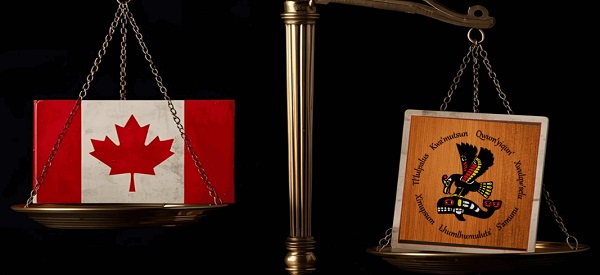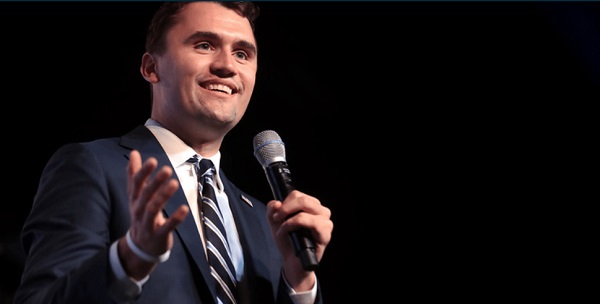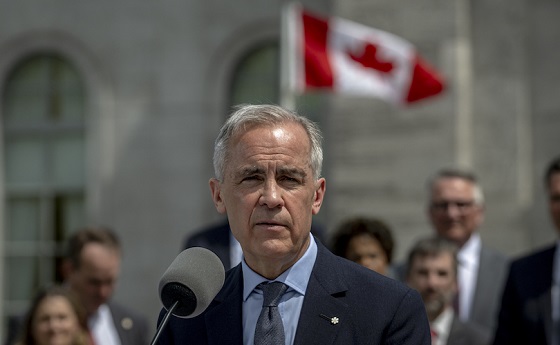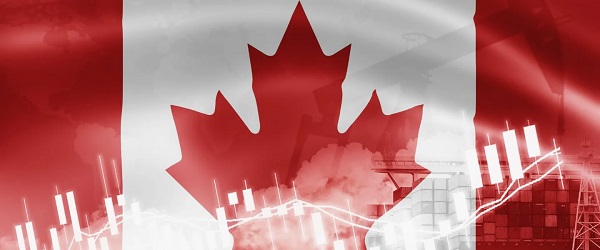C2C Journal
Canada’s Health-Care Monopoly is Killing Us

By Gwyn Morgan
Canadians are proud of their universal health-care system. Politicians hold it up as proof of our compassion, while unions fight to preserve it and judges unfailingly defend it. But pride and rhetoric can’t mask reality: Canada spends more on health care than almost any other country in the world and delivers some of the worst results. Our hospitals are overloaded, wait times are intolerable, and tens of thousands of patients die each year before receiving the treatment they need.
Consider just two heartbreaking stories. Last year, 16-year-old Finlay van der Werken of Burlington, Ontario, spent eight fruitless hours in a local emergency room crying out in pain from sepsis and pneumonia before being sent to hospital in Toronto. By then it was too late. His parents faced the unimaginable: taking their son off life support. In another case known to me personally, the eight-year-old daughter of a carpenter doing some work for us endured agonizing pain from noon until nearly midnight before finally receiving treatment for severe injuries. She survived, at least.
These are not isolated cases. A May 2025 report from the Foundation for Economic Education revealed that some Canadian emergency rooms have exceeded 200 percent of capacity, forcing patients into hallways and even onto floors. In 2023 alone, more than 1.3 million Canadians abandoned emergency room visits due to excessive waiting times.
Beyond the ER, the picture is no better. A study by the think-tank Second Street estimated that 15,474 Canadians died in 2023–24 before receiving diagnostic scans or surgeries. Because provinces often refused to provide full data, Second Street believes the true number is more like 28,000. Those findings are in line with the results of the Commonwealth Fund’s annual health policy survey , which ranked Canada dead last among 31 high-income countries with universal health care for timely access to services.
How did we get here? The answer begins with the Canada Health Act, passed in 1984 during the final months of Pierre Trudeau’s government. Politicians of the day never asked how they would fund their ambitious promises. Within years, hospitals faced budget shortfalls and began
reducing operating room hours. Surgical time for doctors like Brian Day, a young orthopaedic surgeon in Vancouver, was cut from twenty hours a week to as little as five. Rationing became the norm.
Day’s frustration led him to co-found the Cambie Surgery Centre in 1996. His goal was simple: to give Canadians a private alternative while helping relieve pressure on the public system. Cambie succeeded. It performed procedures at 40 to 50 percent of the cost of public system and cut wait times at government hospitals by handling complex cases. But success drew the ire of unions and bureaucrats. In 2009, the B.C. Nurses Union pressured the provincial government to shut down private clinics. A lengthy legal battle ended in 2023 when the Supreme Court of Canada simply refused to hear Cambie’s appeal.
The result? Canada remains the only universal-care country that bans or severely restricts private options. Every other nation surveyed by the Commonwealth Fund permits private-pay care alongside government-funded care. The logic is obvious: when patients have a private alternative, demand on the public system eases and overall access improves. Yet Canadian politicians cling to the myth that a government monopoly is the only way to ensure fairness. In truth, it ensures suffering.
Prime Minister Mark Carney epitomizes this contradiction. On the campaign trail, he promised to “defend the Canada Health Act” while also pledging to “add thousands of new doctors” and “build a system Canadians can be proud of.” These goals cannot be reconciled. For decades, medical school enrolments were deliberately capped to ration supply on the theory that more doctors would lead to higher costs. Reversing that policy would require massive, long-term expansion of training capacity. No government could deliver on Carney’s promises quickly, and certainly not while clinging to the Act that caused the problem in the first place.
The crisis in Canadian health care is not about money. It is not about the number of doctors or the fine details of regulations. It is about the structure of the system itself. Government monopolies almost always fail, and they usually fail at great cost. In health care, that cost is counted not only in wasted billions but in human lives.
The evidence from around the world is overwhelming. Private delivery alongside public insurance yields better outcomes for patients who pay directly and faster access for those who remain in the public system. It works in the UK, Australia, and across Europe. It could work here too.
Canadians deserve more than rhetoric and promises. They deserve access to timely, effective care. That will never happen until our leaders muster the courage to reform the Canada Health Act and end Canada’s fatal obsession with a failing monopoly.
The original, full-length version of this article was recently published in C2C Journal.
Gwyn Morgan is a retired business leader who was a director of five global corporations.
Business
Judges are Remaking Constitutional Law, Not Applying it – and Canadians’ Property Rights are Part of the Collateral Damage

By Peter Best
The worst thing that can happen to a property owner isn’t a flood or a leaky foundation. It’s learning that you don’t own your property – that an Aboriginal band does. This summer’s Cowichan Tribes v. Canada decision presented property owners in Richmond B.C. with exactly that horrible reality, awarding Aboriginal
title to numerous properties, private and governmental, situated within a large portion of Richmond’s Fraser River riverfront area, to Vancouver Island’s
Cowichan Tribes. For more than 150 years, these properties had been owned privately or by the government. The Cowichan Tribes had never permanently lived
there.
But B.C. Supreme Court Justice Barbara Young ruled that because the lands had never been formally surrendered by the Cowichans to the Crown by treaty, (there
were no land-surrender treaties for most of B.C.), the first Crown grants to the first settlers were in effect null and void and thus all subsequent transfers down
the chain of title to the present owners were defective and invalid.
The court ordered negotiations to “reconcile” Cowichan Aboriginal title with the interests of the current owners and governments. The estimated value of the
property and government infrastructure at stake is $100 billion.
This ruling, together with previous Supreme Court of Canada rulings in favour of the concept of Aboriginal title, vapourizes more than 150 years of legitimate
ownership and more broadly, threatens every land title in most of the rest of B.C. and in any other area in Canada not subject to a clear Aboriginal land surrender
treaty.
Behind this decision lies a revolution – one being waged not in the streets but in the courts.
In recent years Canadian judges, inspired and led by the Supreme Court of Canada, have become increasingly activist in favour of Aboriginal rights, in effect
unilaterally amending our constitutional order, without public or legislative input, to invent the “consult and accommodate” obligation, decree Aboriginal title and grant Canadian Aboriginal rights to American Indians. No consideration of the separation of powers doctrine or the national interest has ever been evidenced by
the Court in this regard.
Following the Supreme Court’s lead, Canadian judges have increasingly embraced the rhetoric of Aboriginal activism over restrained, neutral language, thus
sacrificing their need to appear to be impartial at all times.
In the Cowichan case the judge refused to use the constitutional and statutory term “Indian,” calling it harmful, thereby substituting her discretion for that of our
legislatures. She thanked Aboriginal witnesses with the word “Huychq’u”, which she omitted to translate for the benefit of others reading her decision. She didn’t
thank any Crown witnesses.
What seems like courtesy in in fact part of a larger pattern: judges in Aboriginal rights cases appearing to adopt the idiom, symbolism and worldview of the
Aboriginal litigant. From eagle staffs in the courtroom, to required participation in sweat lodge ceremonies, as in the Supreme Court-approved Restoule decision,
Canada’s justice system has drifted from impartial adjudication toward the appearance of ritualized, Aboriginal-cause solidarity.
The pivot began with the Supreme Court’s 1997 Delgamuukw v. British Columbia decision, which first accepted Aboriginal “oral tradition” hearsay evidence. Chief
Justice Lamer candidly asked in effect, “How can Aboriginals otherwise prove their case?” And with that question centuries of evidentiary safeguards intended
to ensure reliability vanished.
In Cowichan Justice Young acknowledged that oral tradition hearsay can be “subjective” and is often “not focused on establishing objective truth”, yet she
based much of her ruling on precisely such “evidence”.
The result: inherently unreliable hearsay elevated to gospel, speculation hardened into Aboriginal title, catastrophe caused to Richmond private and government property owners, the entire land titles systems of Canadian non-treaty areas undermined, and Crown sovereignty, the fount and source of all real property rights generally, further undermined.
Peter Best is a retired lawyer living in Sudbury, Ontario.
The original, full-length version of this article was recently published in C2C Journal.
C2C Journal
Charlie Kirk and the Fragility of Civic Peace

The brutal assassination of Charlie Kirk was shocking not only for its violence but for the chilling aftermath – the revelling on the left, the mendacious reporting, and the calls for more political violence.
Kirk embodied a conversational politics now rare. As founder of Turning Point USA, he brought millions of young people to conservatism by touring campuses and inviting critics – not just supporters – to the microphone. He strode into the lion’s den of higher education, taking hostile questions with civility, good humour, and reasoned argument rather than rancour.
“Disagreement,” he liked to say, “is a healthy part of our systems.”
It wasn’t necessary to share his convictions to recognize his courage and composure.
The reaction to Kirk’s death on September 10 at Utah Valley University was particularly disturbing. News outlets and social media overflowed with callous gloating and demands for further violence. “He got what he deserved” was among the milder responses. A conservative group logged more than 50,000 such comments in four days. Democratic members booed a motion for silence in Congress. A Secret Service agent called Kirk’s death “karma.”
How did it become virtuous to cheer a fellow human being’s death? Part of the answer lies in what literary critic George Steiner called the passing of the tragic vision. In The Death of Tragedy (1961), Steiner argued that tragedy – once the highest expression of human dignity amid suffering – had perished in Western culture, and its loss was civilizational.
The tragic view holds that suffering is an inherent part of the human condition. Chance, flaw, and necessity are woven into our very existence. This recognition distinguishes the tragic sensibility from utopian schemes of collective redemption. Enlightenment rationalism envisioned the world as scientifically perfectible; Marxism reinterpreted conflict as a class struggle culminating in utopia; the managerial state promised that expertise would eliminate disorder.
But when we forget life’s limits, politics ceases to be the art of prudence and compromise and becomes a fever dream of utopia. Once utopia is the aim, violence is reimagined as a form of purification. The French Revolution’s Terror, Stalin’s gulags, Mao’s Cultural Revolution, Pol Pot’s killing fields – each arose from rejecting Kant’s warning: “Out of the crooked timber of humanity, no straight thing was ever built.”
Tragic sensibility is not fatalism. It tempers ambition with humility, recognizing that motives are mixed, victories partial, and knowledge flawed – and that opponents share our frailties. To acknowledge this crookedness is clarity, not despair. Only those who accept tragic limits can build anything lasting.
Politics lacking tragic sensibility becomes a substitute religion, promising salvation through power. Opponents become enemies; compromise becomes betrayal; violence follows. Those convinced of their righteousness feel justified in demonizing others. This tendency is especially apparent on today’s left; its ‘virtuous’ rhetoric of compassion often masks self-righteousness – and self-righteousness without humility can be deadly.
Consider Kirk’s accused assassin, 22-year-old Tyler Robinson. Raised in a stable, conservative family, Robinson drifted leftward and was recently radicalized, seemingly influenced by his transitioning roommate. He referred to himself as a leftist who loathed Trump. One can envision him then, cloaked in righteousness, believing he struck a blow against evil. The opponent becomes not a fellow human being but a symbol of oppression. Murder is no longer malice but moral necessity – the cost of purity. As Robespierre said, “Terror is nothing other than prompt, severe, inflexible justice; it is therefore an emanation of virtue.”
Canadians often imagine themselves immune to such eruptions. Yet our history tells another story: the October Crisis, the Air India bombing… seventy churches burned after unproven residential-school claims, and on-going anti-Jewish protests. Violence disguised as virtue is not alien to our soul.
Canadian academics exhibited hatred comparable to Kirk’s worst American foes. “Shooting is honestly too good for so many of you fascist c—-,” posted University of Toronto professor Ruth Marshall hours after Kirk’s death. Toronto schoolchildren reportedly cheered the news, while teachers watched passively.
This moment is perilously fragile. Social media amplifies outrage, rewarding anger while penalizing restraint. Every disagreement becomes an “existential crisis.” Every opponent is Hitler. The language of “emergency” and “genocide” floods politics, quickening the slide from rhetoric into violence.
The antidote is not repression but the recovery of tragic wisdom: we must temper politics with humility. This requires cultural renewal and virtues that allow citizens to live with differences: prudence, courage, humility, and charity. We need a civic ethos that balances rights with responsibilities, diversity with shared norms. Without restraint, pluralism degenerates into tribalism.
As Solzhenitsyn wrote in The Gulag Archipelago: “the line dividing good and evil cuts through the heart of every human being.” This understanding counters ideologies dividing the world into pure and impure, oppressor and oppressed. The battle is within each heart – and that recognition demands humility.
Kirk’s assassination serves as a grim warning. The decline of civic peace is never accidental; it springs from ideological fanaticism, the conviction that one’s cause is so virtuous that opponents must be demonized and destroyed. Every destructive ideology cloaks itself in righteousness even as it paves the road to cruelty.
Charlie Kirk’s death exposes the danger of politics detached from a tragic sensibility. We must foster a politics tempered with humility, recognizing that our victories are partial and our understanding imperfect. Without this humble wisdom, freedom itself cannot survive.
The original, full-length version of this article was recently published in C2C Journal.
Patrick Keeney is a Canadian writer who divides his time between Kelowna, B.C., and Thailand.
-

 Alberta8 hours ago
Alberta8 hours agoFrom Underdog to Top Broodmare
-

 International19 hours ago
International19 hours agoPrince Andrew banished from the British monarchy
-

 Business1 day ago
Business1 day agoCanada’s attack on religious charities makes no fiscal sense
-

 Business18 hours ago
Business18 hours ago“We have a deal”: Trump, Xi strike breakthrough on trade and fentanyl
-

 Alberta2 days ago
Alberta2 days agoNobel Prize nods to Alberta innovation in carbon capture
-

 Bruce Dowbiggin1 day ago
Bruce Dowbiggin1 day agoGet Ready: Your House May Not Be Yours Much Longer
-

 Crime18 hours ago
Crime18 hours agoCanada Seizes 4,300 Litres of Chinese Drug Precursors Amid Trump’s Tariff Pressure Over Fentanyl Flows
-

 National2 days ago
National2 days agoCanadian MPs order ethics investigation into Mark Carney’s corporate interests









